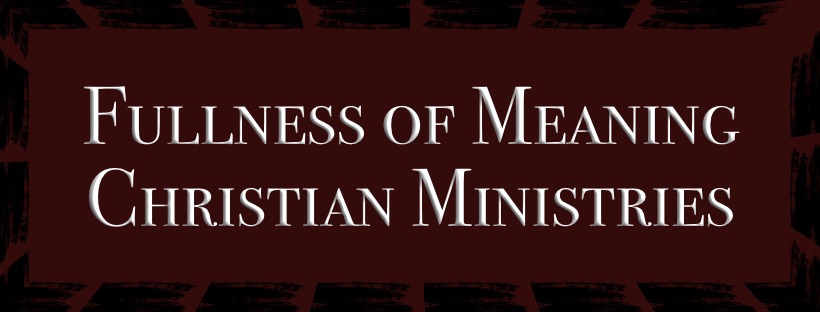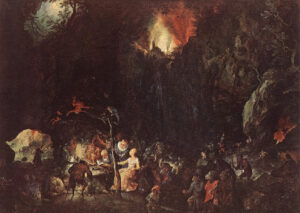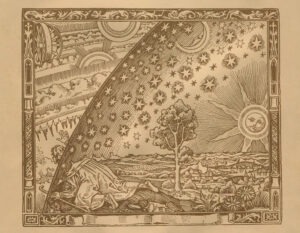Happy and Sad/ Kob and Satis
2 Terms to know:
1) *Happy*: Proto Indo European: “Kob” = ‘met to the desire of one’s wants to make *happy*’; ‘to suit, fit, succeed’; Old Norse: ‘chance, good luck (allotment)’/ Middle English: ‘chance, fortune’
2) *Sad*: Old English: “saed” = ‘sated’, full, having had one’s fill (of food, fighting, sex, etc.)’; {rooted the same throughout all Germanic etymologies the same as the Old English and Latin} Latin/ Indo European roots: “Satis” = ‘fully satisfied, satiated and sad’.
We culturally believe that “happy” conveys the opposite meaning of “sad” but this is not true. Happy and sad need each other to make ‘secular sense’,‘natural sense’ or “cause and effect” (cf. to footnote 1)
The ‘probability picture (cf. to footnote 2)‘ goes as follows: “the effect was the ‘satis’. John’s death was from the complications of a heart attack. The part about ‘John incessantly eating horrible foods and never exercising’ was the “kob” of John. The fulfillment of overeating was the “satis” of John.
So, in John’s case, Kob, a.k.a., ‘gormandizing’ or ‘gluttony’, telegraphed to Kob’s “SATIS”, i.e., death
As a drug addict is ‘happy’ to get their fix, the telegraph of happy is being sad, depressed, lost, dead, hence, “satis”. Happy to Sad.
The problem all along has been that the individual was ‘dispensing allotments’ to themselves. They ‘allotted’ their ‘apportionments’ to make them ‘happy’ versus ‘met’.
Happy and Sad
METOD or MEASURER (cf. to footnote 3) or Deity that “knows” how to dispense. This is the interconnected genius of linguistics that brings us back in time to the God to history to language relation. God, the Measurer, can ‘Kob’ us, that is, Metod can ‘fully meet us to all of our wants and needs without our hurt. When we find our end result of gormandizing on HIS word, we are never left hurt. We are infinite beings with infinite capacity for an infinite GOD. THIS relationship of cause and effect is the ONLY relationship that no one can ever go ‘overboard’ (cf. to footnote 4).
Footnotes
1 Uninterrupted flow. Plato gives us the term, “poesis” to mean ‘a flow that moves without disturbance’.
2 I.e., ‘what is provable within the *picture frame* of observable or ostensible judgement.
3 Therefore, the cause is kob. The effect is satis. They cannot be disenfranchised from one another unless they are plasticized as terms used for unnatural agendas#. I’d like to say that not always is Kob to Satis a bad thing when taken to the Metaphysical. It can be the best thing when taken to the METOD or MEASURER or Deity that “knows” how to dispense. This is the interconnected genius of linguistics that brings us back in time to the God to history to language relation. God, the Measurer, can ‘Kob’ us, that is, Metod can ‘fully meet us to all of our wants and needs without our hurt. When we find our end result of gormandizing on HIS word, we are never left hurt. We are infinite beings with infinite capacity for an infinite GOD. THIS relationship of cause and effect is the ONLY relationship that no one can ever go ‘overboard’.
The Allotment God#
4 It is only in the Theological sense do we find the ultimate maxim for this lesson:
If we do not count on God as the Sovereign Giver (giver of satisfaction and joy) we replace HIM with dispensing gods# that ‘allot’ —or “luck” to us, our fated ‘apportionments’. For as Ecclesiastes teaches us in chapters one and two, *”We are never satisfied by the objective things in this world; all that is in the world, when objectified and sought after, becomes vainglory, and associated with sadness if not used in relation to God’s Sovereignty, that is, His dispensing”*.





